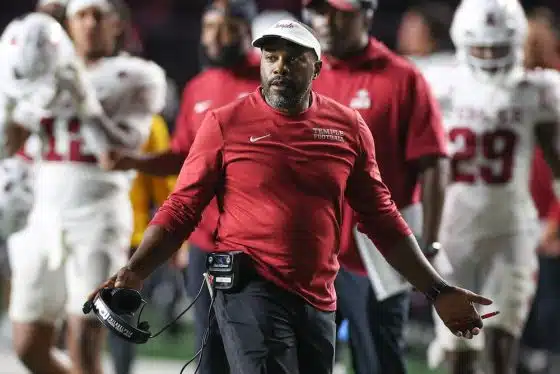Uncategorized
Pennsylvania Lawmakers To Consider Smoking Ban In Casinos

Pennsylvania lawmakers are pushing to ban smoking in casinos throughout the KeyStone State. Smoking inside casinos is currently permitted because of loopholes in Pennsylvania’s Clean Indoor Air Act.
House Health Committee Chairman Dan Frankel is sponsoring a bill that would ban smoking in Pennsylvania casinos
The legislation is sponsored by House Health Committee Chairman Dan Frankel, D-Allegheny County. Frankel said during a news conference last week that casinos are the biggest obstacle in banning the practice.
Frankel also added that casino industry representatives declined to provide input at the November hearing when the health committee addressed the health effects of secondhand smoke.
“While it was a great advancement, it begs the issue of whether these exceptions that some people ought to be the beneficiaries of clean indoor air and some people aren’t,” Frankel said. “It’s not fair. It’s not right. And it’s not good for the health of Pennsylvanians.”
Representatives of the casino industry seem unconcerned, per PennLive’s Jan Murphy. The current law allows up to 50% of the gaming floor in casinos to be designated for smoking.
However, Parx Casino has a complete indoor smoking ban at its facilities in Pennsylvania.
Jen Rubolino, a founding member of Casino Employees Against Smoking Effects who uses an inhaler, told the health committee at a September hearing that even though she works in the non-smoking section of a casino, it doesn’t eliminate her exposure to secondhand smoke.
A 2009 NIH study concluded that secondhand smoke would cause six out of 10,000 casino works to die of heart disease, lung cancer
During the September hearing, Frankel referenced a 2009 National Institutes of Health (NIH) study of secondhand smoke in Pennsylvania casinos that was released after the enactment of the indoor smoking law.
The study concluded that secondhand smoke would cause an estimated six out of 10,000 casino workers to die of heart disease and lung cancer annually, according to Murphy.
Sen. Jay Costa, D-Allegheny County, has introduced legislation that also seeks to ban smoking inside casinos and other places where it is still permitted.
Sen. Wayne Fontana, also an Allegheny County Democrat, has put forth a bill that would allow casinos to decide whether or not they want to ban smoking altogether.
If the measure becomes law, Pennsylvania will join nine other states that banned all smoking inside their casinos, according to the Centers for Disease Control and Prevention.
The other states are Colorado, Illinois, Maine, Maryland, Massachusetts, New York, Ohio, South Dakota, and Washington. Puerto Rico and the U.S. Virgin Islands require their casinos to be smoke-free as well.
When the House Health Committee voted in November to advance Frankel’s legislation, none of the amendments presented referenced casinos.
Bill would have initially required clubs that want to allow smoking to have a fully enclosed smoking lounge with a full exhaust system
The significant change to Frankel’s bill pertained to adding more restrictions on allowing smoking in private clubs that currently leave that decision up to their membership.
This bill would have required clubs that want to allow smoking to have a fully enclosed smoking lounge with a full exhaust system and other features to contain and filter smoke.
Rep. Kathy Rapp, R-Crawford County, said at the November meeting that such an air filtration system would be too expensive for a few clubs. She was most concerned about the impact it would have on veterans’ organizations.
“I’m making a statement for the freedom of our veterans clubs especially and older private clubs who can’t afford the luxury of filtration systems like ritzy elite clubs in the cities,” Rapp said. “This isn’t about cigarettes to me. It’s about the freedom for our veterans and private clubs.”
Furthermore, Frankel said the Veterans of Foreign Wars (VFW) was adamant about being excluded from the smoking ban when the 2008 law was passed.
That was 16 years ago. Much has changed since then. In a recent discussion with a VFW representative, Frankel was told that “the concerns they have are really for the veterans themselves and their health and welfare.”
Frankel said his bill is more about promoting the health benefits that will have a positive effect on all Pennsylvania residents via an expanded indoor smoking ban.












































